
Image Common heather (Calluna vulgaris) 418019 Images of Plants and Gardens botanikfoto
Calluna vulgaris Calluna vulgaris HeatherFamily: Ericaceae Height: 45cm Spread: 60cm Hardy Attractive to wildlife Position Soil Acidic / Well Drained / Light / Sandy Heather (Calluna vulgaris) offers year-round interest, with masses of summer flowers and evergreen foliage.
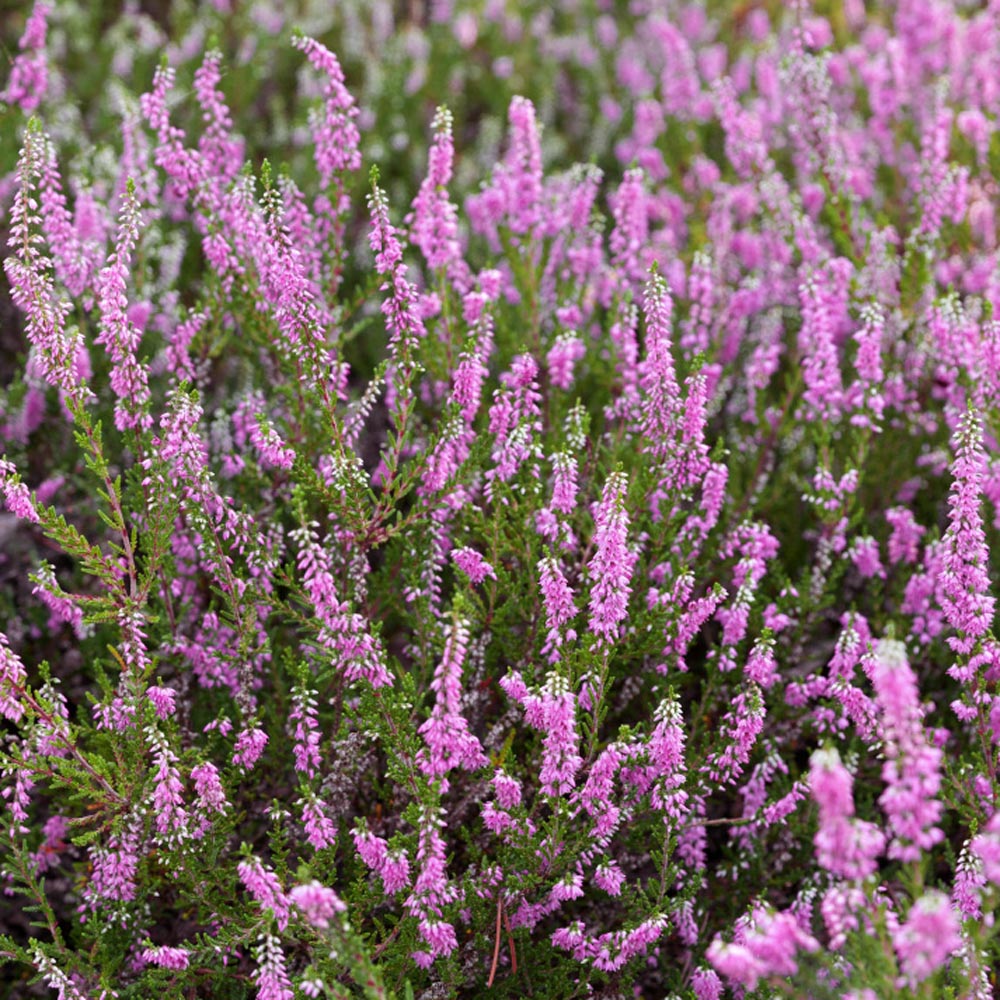
Calluna Vulgaris Perennial Heather Flower Seeds
Calluna vulgaris, common heather, ling, or simply heather, [1] is the sole species in the genus Calluna in the flowering plant family Ericaceae.
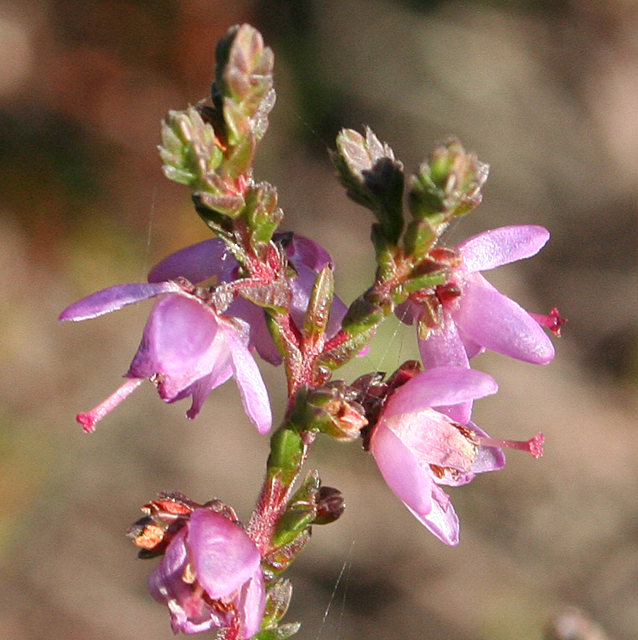
Heather (Calluna vulgaris) © Anne Burgess ccbysa/2.0 Geograph Britain and Ireland
Attractive to bees. Care Heather needs an open site in well-drained, fertile, acidic soil in full sun. Mulch and cover with pine boughs if snow cover is not consistent. Prune annually in spring by cutting back flowered shoots to within an inch of previous year's growth. Propagation Layer in spring, or root semi-ripe, 2-inch cuttings in midsummer.

Common Heather (Calluna Vulgaris) Free Stock Photo Public Domain Pictures
Calluna vulgaris is easy to care for and extremely popular with gardeners and beneficial insects alike. This very hardy heather plant goes by many names, such as ling, calluna, calluna heather, Scots heather or simply common heather. It is a low-growing plant that is also well suited as a ground cover.
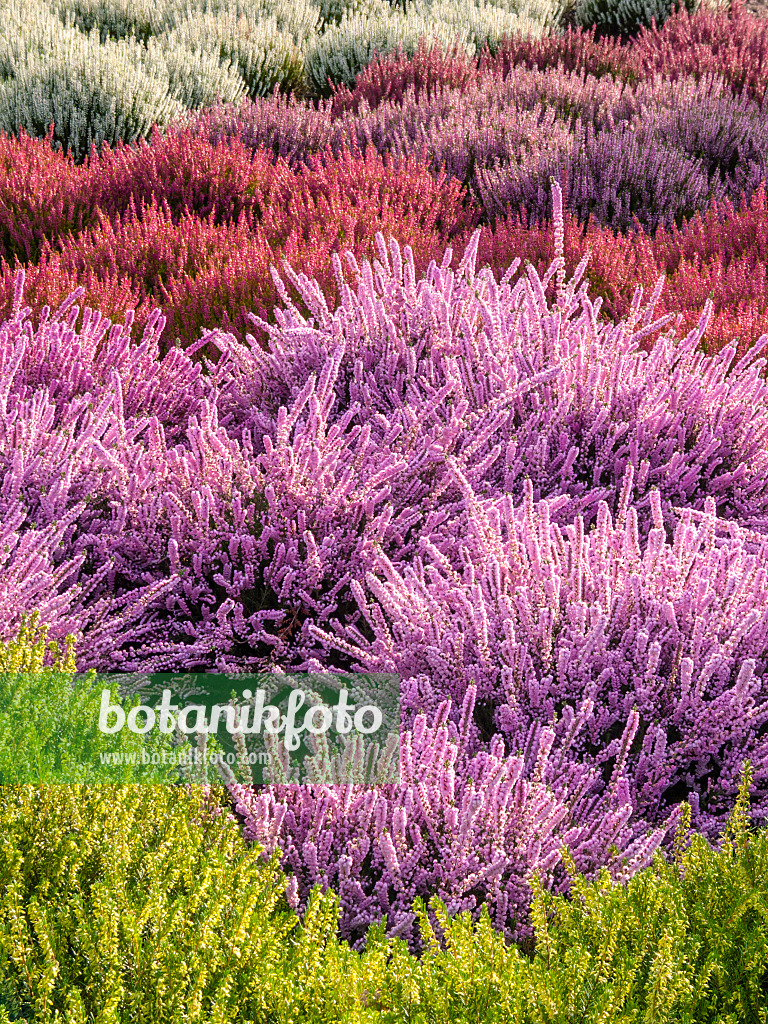
Image Common heather (Calluna vulgaris) 418017 Images of Plants and Gardens botanikfoto
Plant name: 'Alicia' Heather Botanical name:Calluna vulgaris 'Alicia' Virtues: Small, tidy shape and evergreen nature makes common heather a good choice for the front of the border or foundation.Curious, persistent flower buds add great interest in fall and winter. Flower: White buds develop in late summer, densely lining the branches. 'Alicia' is a "bud bloomer"—its buds.
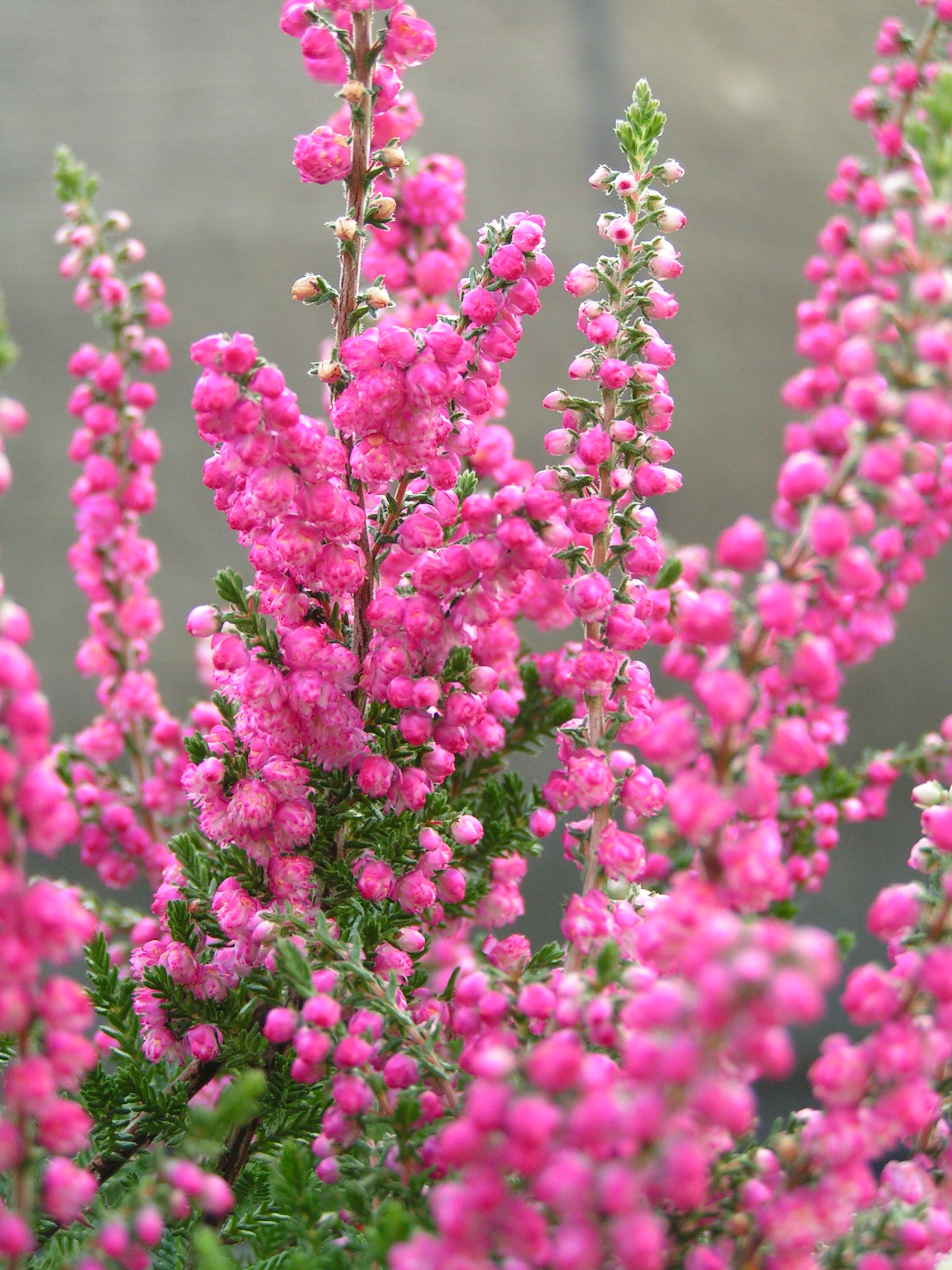
Calluna vulgaris The Heather Garden
Calluna vulgaris, commonly called Scotch heather, heather or ling, is a small, variably-sized, evergreen shrub that is native primarily to moors, dunes, bogs, heaths and hillsides from northern and western Europe to Siberia, Turkey and Morocco. It has naturalized in parts of North America, particularly in the northeastern U.S. and the Northwest.

Common heather tips to care for Calluna vulgaris in the best possible way
Phonetic Spelling kal-LOO-nah vul-GAIR-iss Description This plant can be grown as a groundcover and is tolerant of poor soils. Prune every spring to prevent bare stems. Insects, Diseases, and Other Plant Problems: Scale and spider mites can be problems. Stem rot occurs during hot, humid summers (like we have in the South).
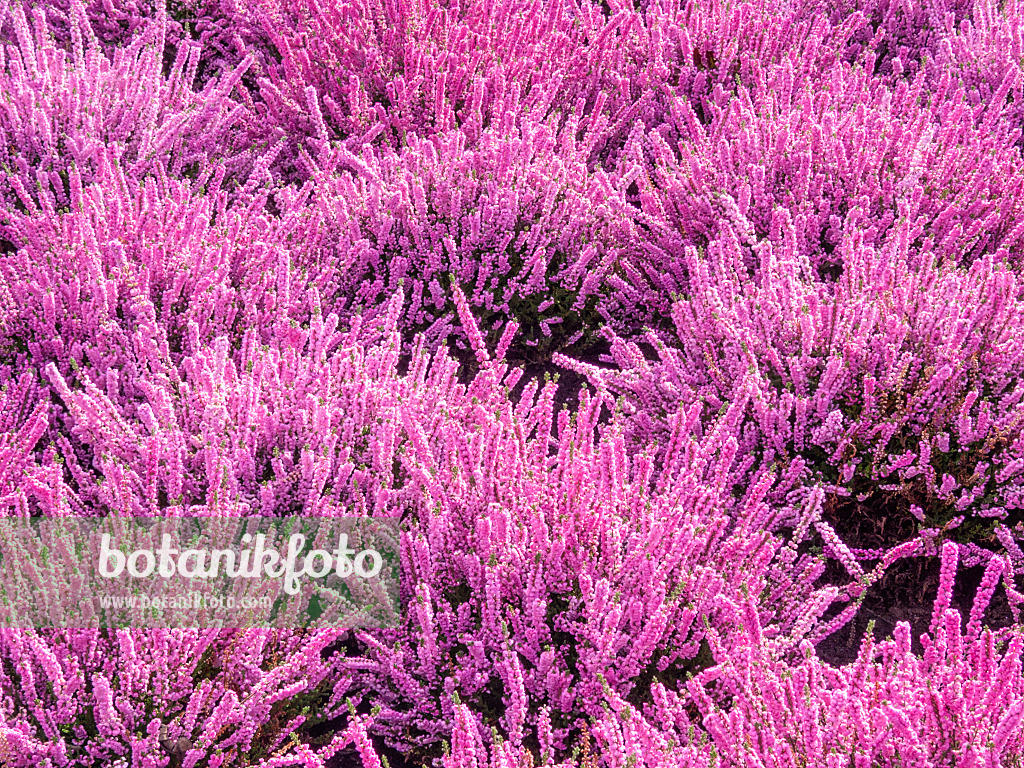
Image Common heather (Calluna vulgaris 'Annemarie') 418012 Images of Plants and Gardens
Calluna vulgaris Heather is a compact, shrubby, evergreen ground cover plant from Northern Europe that covers itself with spires of tiny, brightly colored bell-shaped flowers from late summer through fall. Heathers are mound forming plants that, depending on the cultivar, may grow anywhere from 4" to 3 feet tall.
Berkeley Butterfly Blog Calluna vulgarisHeather
Heather Plant Quick Care Tips Botanical Name: Calluna Vulgaris Common Name (s): Heather, Scotch Heather Synonyms: Erica vulgaris Family & Origin: Ericaceae family, native to Europe and South Africa Growability: Easy to grow Grow Zone: 4-6 Size: 6-24 inches tall and wide Flowering: Late summer to fall, pink, purple, white, or red flowers
Common heather (Calluna vulgaris) Photos, Diagrams & Topos SummitPost
Evergreen, Heaths (Erica), and Heathers (Calluna vulgaris) are terrific plants that deserve a spot in the garden. Their fabulous ability to change color year-round, injecting vivid life into our landscape at a time when they need it most, is invaluable.
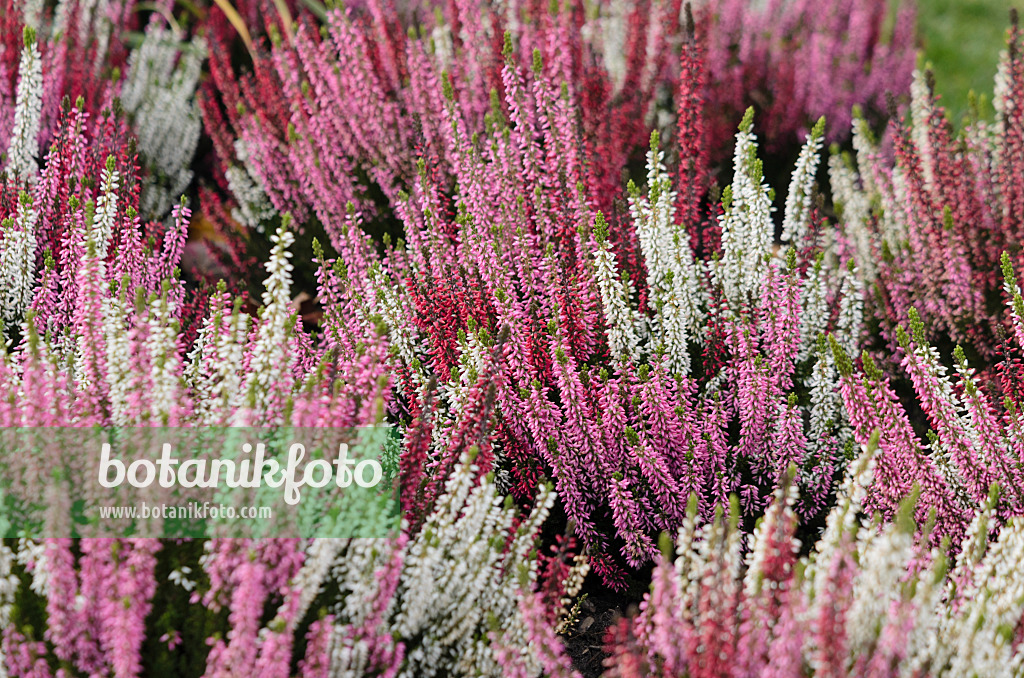
Image Common heather (Calluna vulgaris 'Beauty Ladies') 573032 Images of Plants and Gardens
About Calluna Vulgaris. Calluna vulgaris is an evergreen shrub that grows natively in Northern and Western Europe, Siberia and North America, but thanks to its ornamental value, it can be found all around the world today.In its native habitat, Calluna vulgaris survives for approximately 30 to 40 years. Calluna vulgaris has a few common names, such as Scotch heather, Ling, Common heather, or.
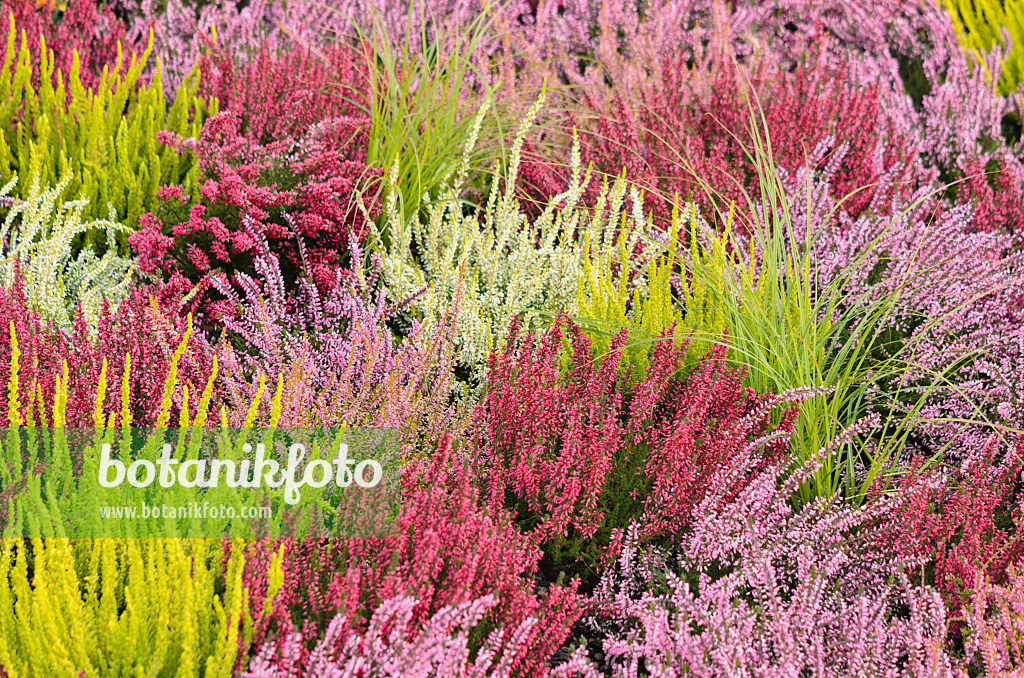
Image Common heather (Calluna vulgaris) 536145 Images of Plants and Gardens botanikfoto
Calluna vulgaris or heather is the lone species in the Calluna genus of the flowering plant Ericaceae family and is indigenous to Europe and Asia Minor. However, it has been established in many other locations of suitable climates, including Australia, North America, New Zealand, and the Falkland Islands.

Calluna Vulgaris Perennial Heather Flower Seeds
Calluna vulgaris grow and care - shrub or subshrub of the genus Calluna also known as Heather plant or Scotch heather, Calluna vulgaris perennial evergreen plant used as ornamental plant for the flowers, bonsai and rarely as medical, grow in temperate, subtropical climate or indoor as houseplant and growing in hardiness zone 4-9 and with the right care in hardiness zone 10.
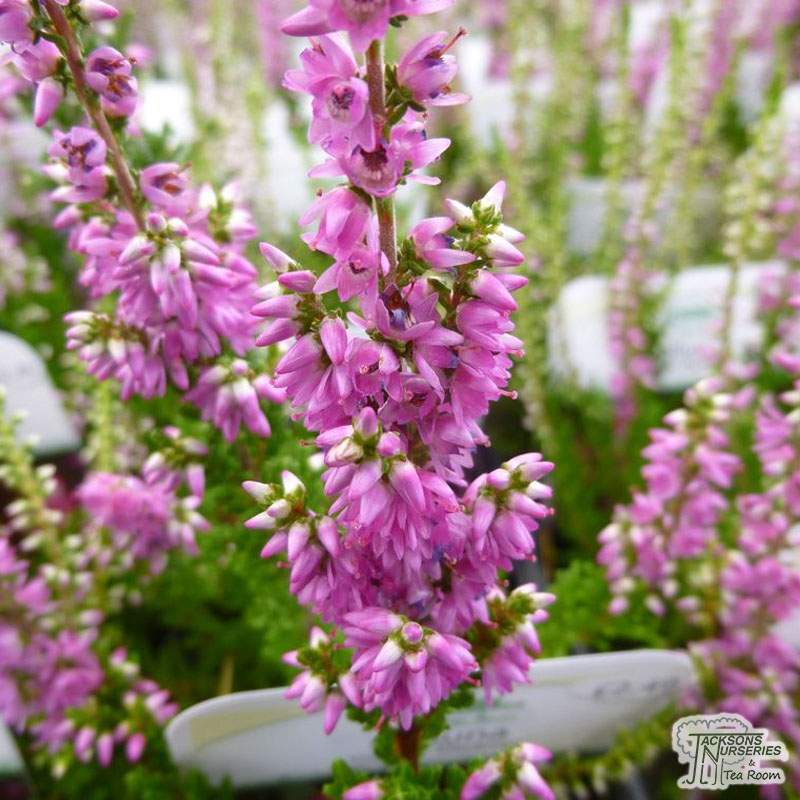
Buy Calluna vulgaris Darkness (Scots Heather) in the UK
Heather, commonly called Scotch Heather, is a small, woody perennial in the Ericaceae family. Its flowers, which bloom from mid-summer to early fall, are usually mauve, purple, or white. Its tiny (1/8 inch long), evergreen, scale-like leaves are valued just as much as its blooms.

Common Heather (Calluna Vulgaris) Free Stock Photo Public Domain Pictures
This small, upright, mounding evergreen shrub makes a perfect ground cover and is well suited to rock gardens. Grows up to 14 in. tall (35 cm) and 24 in. wide (60 cm). Performs best in full sun in sandy or gravelly, acidic, moist, well-drained soils. Part shade is welcomed in hot summer areas. Moist and cool climates are preferred.
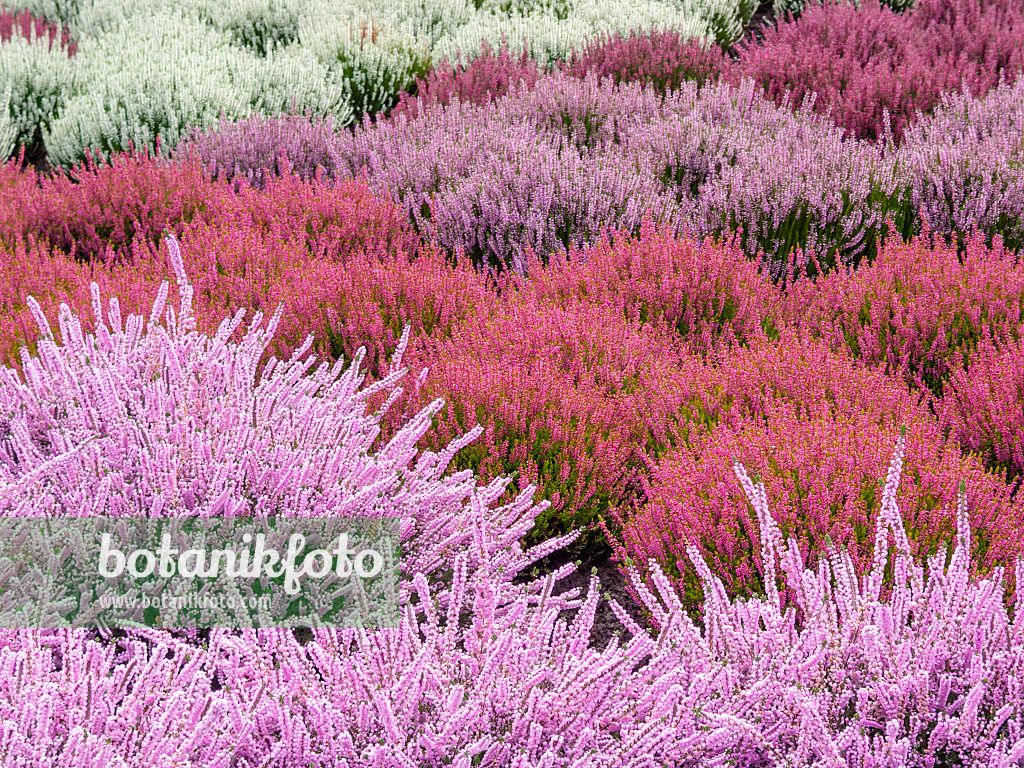
Image Common heather (Calluna vulgaris) 418013 Images of Plants and Gardens botanikfoto
Calluna Common name: Ling, Heather Calluna are types of heather that make great evergreen ground cover in an sunny area of the garden.